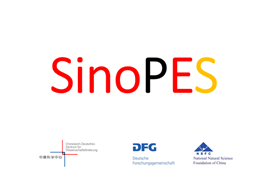16.04.2021

The project “SinoPES”, coordinated by the ZALF working group of “Governance of Ecosystem Services”, had its virtual kick-off meeting on 8th April with 19 participants. Over the next 3 years, the 6 partners from Germany and China will work together on innovation to develop a coordinated, efficient and sustainable management and financing mechanism for ecosystem services considering the contexts of Germany and China.
In the kick-off workshop, the German research team presented the concept of ecosystem service governance and the corresponding practice in Germany and Europe. This has been further demonstrated by using recent innovation as examples, including Dutch collective model, Hipp value chain approach and digital driven approach. An example of digitally managed approaches in Germany is the "AgoraNatura" platform, while in China the "AntForest" app is currently in use for ecosystem service governance. Moreover, the Chinese team showed their research of Eco-Compensation, which is China’s like-version of Payment for Ecosystem Services (PES). A case study of Xin’an river basin presented the Eco-Compensation’s combining approach of market-oriented mechanisms and government interventions. As a result, the discussion recognized that many important components of governance of ecosystem services are framed differently in Germany and China. This includes payments for ecosystem services, stakeholder engagement, and the value chain. The governance approaches of the two countries also differ in how outcome-based, collective, and collaborative they are designed to be and in the way they are digitally implemented. The case study from China showed that PES are adopted and transformed as different forms of practicing in state environmental governance combining authoritarian intervention, marketization, commodification and privatization. The participants recognized that a comparative review in conceptualization of the two countries might provide new understanding of the diversity of PES.
The next step of "SinoPES" would be investigating the similarities and differences between those important components considering the framework conditions in two countries. The participants have agreed to organize a workshop around September this year.
Funding:
The "SinoPES" project is funded by the Sino-German Mobility Programme of the Sino-German Center for Science Research with DFG and NSFC.
Project partners:
- Leibniz Center for Agricultural Landscape Research (ZALF)
- University of Hannover
- Humboldt University of Berlin
- Institute of Geographic Sciences and Natural Resources Research, (CAS)
- Chinese Academy of Environmental Planning
- South China Agricultural University
Further Information:
